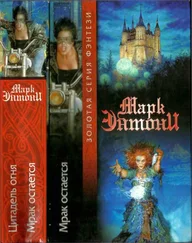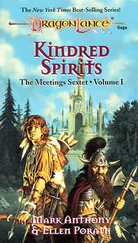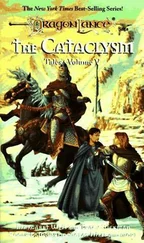Марк Энтони - The Cataclysm
Здесь есть возможность читать онлайн «Марк Энтони - The Cataclysm» весь текст электронной книги совершенно бесплатно (целиком полную версию без сокращений). В некоторых случаях можно слушать аудио, скачать через торрент в формате fb2 и присутствует краткое содержание. Год выпуска: 1992, Жанр: Фэнтези, на английском языке. Описание произведения, (предисловие) а так же отзывы посетителей доступны на портале библиотеки ЛибКат.
- Название:The Cataclysm
- Автор:
- Жанр:
- Год:1992
- ISBN:нет данных
- Рейтинг книги:5 / 5. Голосов: 1
-
Избранное:Добавить в избранное
- Отзывы:
-
Ваша оценка:
- 100
- 1
- 2
- 3
- 4
- 5
The Cataclysm: краткое содержание, описание и аннотация
Предлагаем к чтению аннотацию, описание, краткое содержание или предисловие (зависит от того, что написал сам автор книги «The Cataclysm»). Если вы не нашли необходимую информацию о книге — напишите в комментариях, мы постараемся отыскать её.
The Cataclysm — читать онлайн бесплатно полную книгу (весь текст) целиком
Ниже представлен текст книги, разбитый по страницам. Система сохранения места последней прочитанной страницы, позволяет с удобством читать онлайн бесплатно книгу «The Cataclysm», без необходимости каждый раз заново искать на чём Вы остановились. Поставьте закладку, и сможете в любой момент перейти на страницу, на которой закончили чтение.
Интервал:
Закладка:
She should have known it. Several seasons ago, the scars had appeared overnight without cause, without warning. For a year they had thickened slowly, hard as the stone walls of our cottage, spreading until my entire body was covered with a network of calluses. I could no longer even tell my age. I was becoming more and more a monstrosity, and no one could say why.
“Why. I would know why, my lady.” It was always my question. I had lost hope of her answering it.
Mother’s gestures grew larger, wilder, and I would not look at her. But when L’Indasha spoke again, my heart rose and I listened fiercely.
“It’s your father’s doing,” the lady said, a bunch of red berries bright as blood against the corona of her hair.
“I have heard that much,” I said, wincing as Mother jostled me frantically. The pain drove into my shoulders, and still I turned my eyes from her gestures. “I want all the rest, Lady Yman. How it was his doing, and why.”
The leaves crackled as the druidess stood and drifted to the mouth of the cave. There was a bucket sitting there, no doubt to catch rainwater, for it was half filled and glazed with a thin shell of ice. With the palm of her hand, the druidess broke the ice, lifted the container, and brought it back to me, her long fingers ruddy and dripping with frigid rain. She breathed and murmured over it for a moment.
I sat up, the heat flaring down my arms.
“Look into the cracked mirror, Trugon,” she whispered, kneeling beside me.
I brushed Mother’s desperate, restraining hand from my shoulder, and stared into the swirl of broken light.
There was a dead man. He was small. His shadow swayed back and forth in a room of wood and stone, dappling the floor below him with dark, then light, then dark. His fine clothing fluttered and his hood lifted slightly. I saw his face … his arms …
“The scars. Lady, they are like mine. Who is he?”
“Orestes,” she replied, stirring the water. “Pyrrhus Orestes. Your father, hanged with a harp string.”
“And … who?” I asked, my sudden urge for vengeance stabbing as hot as the beatha , as the burning.
“By his own hand, Dove,” L’Indasha said. “When he thought he could neither redeem nor … continue the line.”
Redeem nor continue . It was quite confusing and I was muddled from the potion and the hour.
L’Indasha’s face reflected off the fractured ice in the bucket: it was older, wounded, a map of lost lands. “You weren’t told. But Orestes got his desire and now the scars have ripened.”
Mother clutched my shoulder. The pain relented a bit.
“Continue what? Lady, ’tis a riddle.”
A riddle the druidess answered, there in the vaulted cave, as the weather outside turned colder still and colder, on a night like those on which the fisherman claim you could walk on ice from Caergoth across the waters to Eastport.
She told me that my father, Orestes, had ridden desperately westward as the peninsula burned at the hands of the invaders. He rode with freebooters—with Nerakans and the goblins from Throt, and they were rough customers, but he passed through Caergoth unharmed. None of them knew he was the son of Pyrrhus Alecto—“the Firebringer,” as the songs called my grandfather.
“Why did he … why didn’t he …” I began to ask. I was only fourteen.
The druidess understood and lifted her hand. “He was just one, and young. And there is a harder reason. Orestes, not your grandfather , had brought the fires to the peninsula. You see, he murdered his master. Your grandmother had fostered his apprenticeship with Anon of Coastlund. She taught him from childhood that he must recover his father’s honor at any cost. Your grandfather’s honor. So he killed Arion, that he should sing no longer of your grandfather’s shame.”
Mother’s grip tightened on my shoulder. I shrugged her away yet again. Again the scars on my neck and face bit and nettled.
“Go on.”
“Then the goblins came, when they heard the new song Orestes sang …”
When Orestes saw what his words had wrought, he ran. It was at the last village seawards—Endaf, where the coast tumbles into the Cape of Caergoth—that Orestes could abide no more of the plunder and burning. Caergoth was in flames behind him, and Ebrill, where the bandits first camped, then Llun and Mercher, vanished forever in the goblin’s torchlight.
He was just one man, and he was young, but even so, surely it shamed him as much as it angered him.
At Endaf he stopped and turned into the fray. He dismounted, broke through the goblins, and joined in a frantic attempt to rescue a woman from a burning inn. Orestes was sent to the rooftop, or he asked to go. The beams gave way with him, and the goblins watched and laughed as Orestes fell into the attic, which fell around him in turn, crashing down and up again in a rapture of fire.
But he lived. He was fire-marked, hated of men, and they would know him by his scars henceforth. The burns had bitten deep and his face was forever changed into a stiffened mask of grief. A fugitive and a vagabond he was upon Krynn, and wherever he traveled, they turned him away. To Kaolin he went, and to Garnet, as far north as Thelgaard Keep and south to the coast of Abanasinia. In all places, his scars and his story arrived before him—the tale of a bard who, with a single verse of a song, had set his country to blaze and ruin.
He took to bride a woman from Mercher, orphaned by the invasion and struck mute by goblin atrocity as they passed through with their flames and long knives. Orestes spirited her away to the woods of Lemish, where in seclusion they lived a dozen years in narrow hope.
A dozen years, the druidess said, in which the child they awaited never came.
That part I knew. Mother had told me when I was very little, the soft arc of her hand assuring me how much they had waited and planned and imagined.
That part I knew. And Mother had shared his death with none but me. But I had never heard just how he had died.
“In despair,” the Lady Yman told me, the cavern lapsing into shadow as her brown, leafy robes blocked out the firelight, the reflection on the ice. “Despair that his country was burning still, and that no children of his would extinguish the fires. He did not know about you. Your mother had come to me, and she knew, was returning to your cottage to tell him, joyous through the wide woods.
“She found what you’ve seen. Orestes could wait no longer. Your mother brought me his note to read to her: I have killed Arion, and the burning will never stop, it said. The land is cursed. I am cursed. my line is cursed. I die.”
L’Indasha reached for me as I reeled, as the room blurred through my hot tears.
“Trugon? Trugon!”
Redeem nor continue . I understood now, about his anger and guilt and the terrible, wicked thing he had done. The beatha raced through me, and the torchlight surged and quickened.
“Why did you finally tell me?” I asked.
“To save your life,” the lady replied. She passed her hand above the broken water, and I saw a future where fires arose without cause and burned unnaturally hot, and my scars were afire, too, devouring my skin, my face, erasing all reason and memory until the pain vanished and my life as well.
“This … this is what will be, Lady?”
“Perhaps.” She crouched beside me, her touch cool on my neck, its relief coursing into my face, my limbs. “Perhaps. But the future is changeable, as is the past.”
“The past?” The pain was gone now, gone entirely.
“Oh, yes, the past is changeable, Trugon,” L’Indasha claimed, passing from firelight to shadow, “for the past is lies, and lies can always change.” She was nearing the end of the answer and the beginning of another riddle.
Читать дальшеИнтервал:
Закладка:
Похожие книги на «The Cataclysm»
Представляем Вашему вниманию похожие книги на «The Cataclysm» списком для выбора. Мы отобрали схожую по названию и смыслу литературу в надежде предоставить читателям больше вариантов отыскать новые, интересные, ещё непрочитанные произведения.
Обсуждение, отзывы о книге «The Cataclysm» и просто собственные мнения читателей. Оставьте ваши комментарии, напишите, что Вы думаете о произведении, его смысле или главных героях. Укажите что конкретно понравилось, а что нет, и почему Вы так считаете.
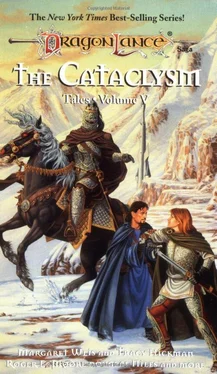
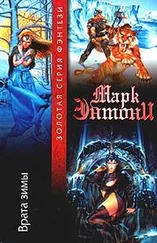
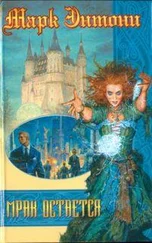

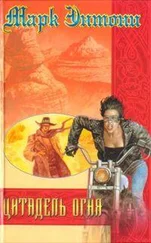
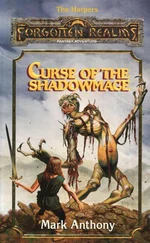
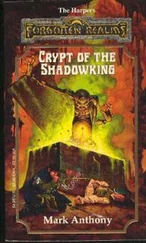
![Марк Энтони - Цитадель огня. Мрак остаётся [Авт. сборник]](/books/103986/mark-entoni-citadel-ognya-mrak-ostaetsya-avt-sbo-thumb.webp)
